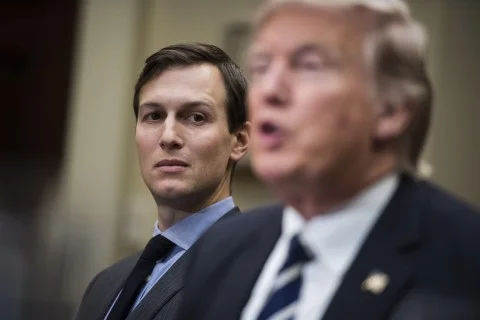A Tale of Two Trips for President Trump By Joshua Turner
President Donald Trump was a “reluctant traveler” on his ambitious, nine-day overseas trip. Trump received a warm welcome from Saudi Arabia and Israel at the start of the trip, but was clearly out of his element in Europe.
At summits for NATO and the G7 Trump lectured America’s most trusted and longstanding allies about NATO funding, refused to acknowledge the “attack on one is an attack on all” element of NATO, would not commit to the Paris Accord, and attempted to bully smaller states, in some cases actually shoving them out of the way. Afterwards, his administration more quietly addressed these things, as Secretary of State Rex Tillerson verified America’s commitment to NATO’s collective defense and National Economic Advisor Gary Cohn explained that Trump’s understanding of climate change is “evolving.”
Still, the president displayed continued skepticism that the existing global order actually helps the United States. Trump is a businessman; all he can see are the numbers and the “return on investment.” For him, the United States has paid more than its fair share in terms of NATO funding and other states are taking advantage.
Yet there is more to this alliance and to foreign policy than balance sheets. The United States is the essential nation in NATO and the resources we spend to maintain our alliances helps in ways that are not as easily quantifiable. Stability and peace in Europe benefits the United States economically and is a bulwark against aggressive states like Russia and to a lesser extent, China. If that stability and the trust of our European allies were to be shaken, it could have severe consequences. This stability and global order are a large part of what allows the United States to continue to function as the most powerful state in the world.
The problem is not just that Trump fails to acknowledge this publicly and/or cannot see this, but that the people in his administration who exert the most influence are actively working against it. Steve Miller, who wrote the speech Mr. Trump delivered to other NATO leaders, has long been a champion of the “America First” foreign policy, as has strategist Steve Bannon. Secretary of State Tillerson comes from the private sector, like Mr. Trump, and has shown himself to share a similar “balance sheet” type of worldview, as he endorses the extraordinary downsizing of the very State Department he leads. Other than Defense Secretary Jim Mattis, there are no apparent dissenting voices.
This trip was deeply concerning to our European and NATO allies. England criticized American intelligence leaks regarding the Manchester terrorist attack, while Germany decried being called “very bad” by President Trump during a meeting with European allies in Brussels.
Deeper questions emerged as well. What will happen if Russia were to attempt further action in Ukraine? What will happen if the U.S. continues to cede ground to China on the international stage, like it did when it pulled out of the T.P.P.? What will happen if the U.S. pulls out of the Paris climate agreement? The U.S. relies on these countries for assistance in maintaining global order in intelligence sharing and as our largest bloc of trading partners.
Business relationships are not the same as diplomatic relationships. Donald Trump may have been able to bully and scam in his private sector dealings, but relations with other countries require a more nuanced approach. This is doubly true when attempting to get our most important allies to me more amenable to our requests.
There are benefits to these relationships that are not always readily apparent or visible. For the sake of our most important alliances and a global order that is largely favorable, the president must learn this quickly.
Joshua Turner is the creator and editor of The Hitch





